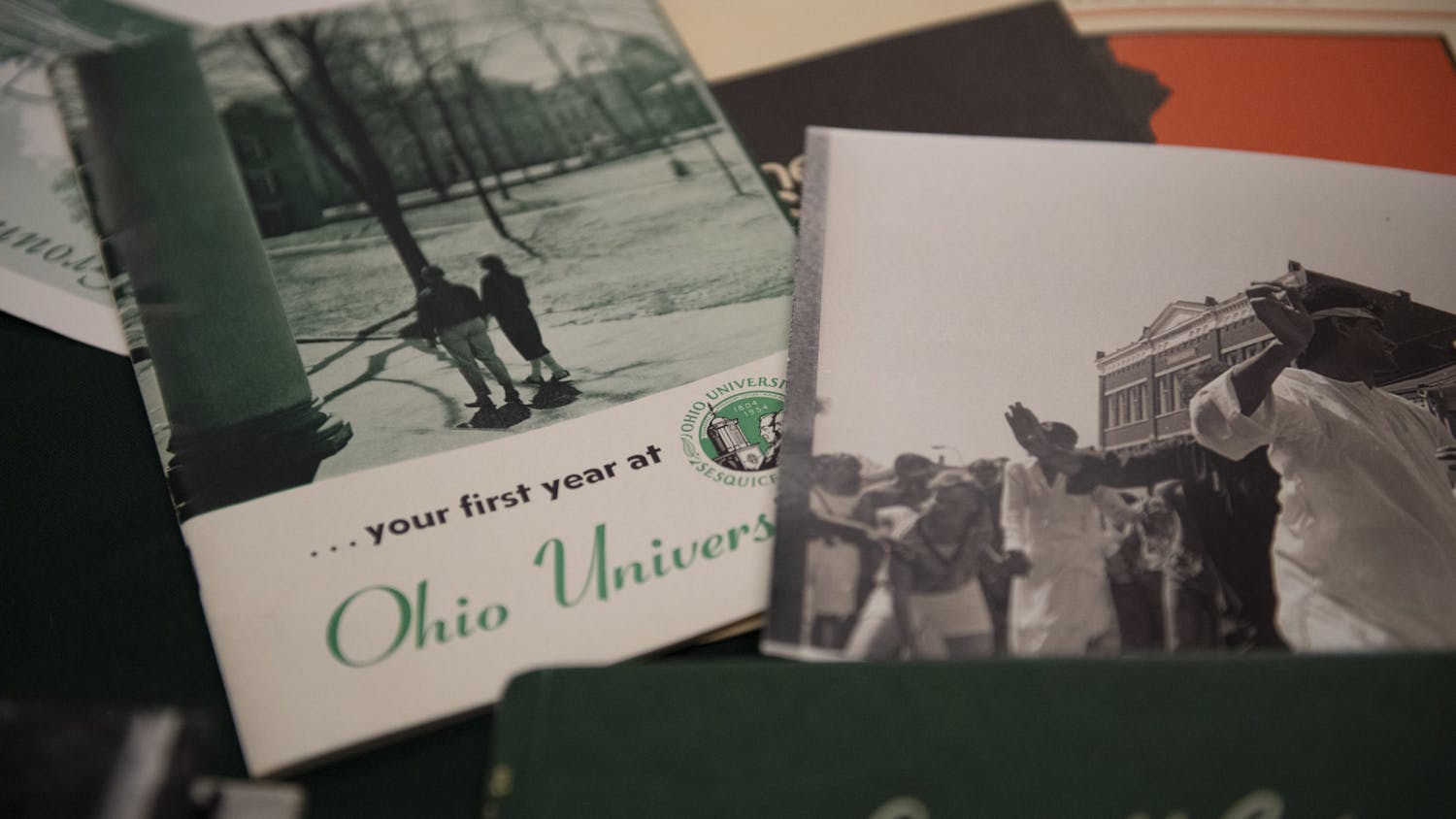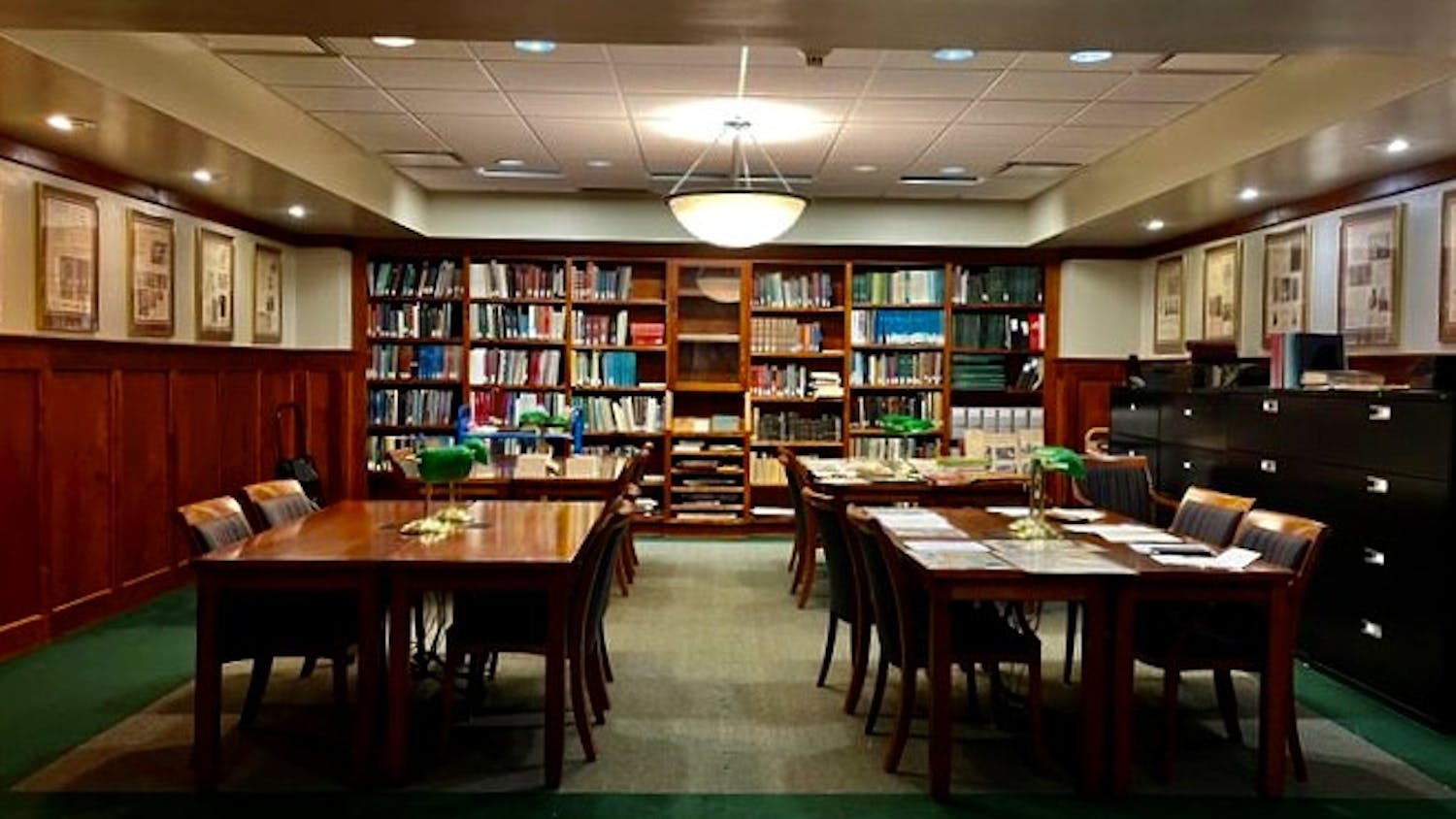Jumping curbs and cutting through alleys are just a few of the norms for Ohio University police officer Kevin Frith on his average night patrolling the greens, dorms and streets that form OU’s campus.
His mode of transportation, however, has two tires instead of four.
Frith is one of 12 certified bike officers employed by the OU Police Department who are tasked with patrolling areas cars cannot.
OUPD has used bike officers since the mid-1990s. The lack of car allows them to be closer to events, travel faster than officers on foot and create a positive relationship with students, said OUPD Chief Andrew Powers.
The bikes OUPD uses cost about $1,000 before being equipped with police gear.
“I can check 10 things (on a bike) in the amount of time it takes you to check one or two on foot,” Frith said. “That’s the big advantage: speed.”
On Friday night, Frith, an OUPD officer since 2007, traversed the distance from College Green to the edge of South Green in just a few minutes.
Bike officers can routinely beat patrol cars to locations because of access to stairs, sidewalks and alleyways that cruisers cannot drive through, Frith said.
They also are able to approach individuals or groups without being detected, Frith said, adding that the bike never hampers his ability to perform his duties.
“We can ride into buildings. We can use elevators or stairs,” he said. “If it’s outside of a building, a bike is going to be a lot faster.”
Depending on call volume, Frith said he usually rides between five and 20 miles on patrol each shift.
“My philosophy is to train as many people as we can on bike patrol,” said Powers, who was a bike officer himself before working for OUPD. “The big advantage to bike patrol is that it combines the mobility of a cruiser with the accessibility of a foot patrol.”
OUPD is the only police department in the county with a bike patrol, though bikes are popular nationally on college campuses, Powers said. He added that officers are required to take a 40-hour class before patrolling by bike.
Frith makes $56,700. Bike officers don’t start with a different salary than other officers, Powers said.
While there are limitations associated with bike patrol, including the inability to transport prisoners and a lack of room for equipment storage, bikes are key in allowing officers to effectively respond to calls, Powers said.
Frith said that aside from horses, bikes are most likely to make officers approachable.
“Being on a bike attracts people,” Frith said. “(That’s good), because you need positive police community contacts. You want to have situations where you build trust and camaraderie with the community.”
However, some students are not as enthusiastic about bike officers.
“It kind of feels like a nuisance,” said Parker Schell, a freshman studying electrical engineering, who has witnessed bike officers on campus. “Everyone has to watch out for them, even if you’re not doing something wrong.”
Other students wish the presence of bike officers were more noticeable.
“It makes me feel safer, but the fact I haven’t seen them around … makes me wonder how effective of a program it really is,” said Ryan Carrigan, a freshman studying journalism. “It’s certainly good to have police presence on campus … but again, I haven’t really seen a whole lot of activity in that regard, so it’s hard to say if it’s really worthwhile.”
Although student opinions vary, Frith continues to focus on his responsibilities, whether he is on foot, driving or using his preferred two-wheeled means of patrol.
“Here it works for everything we do, (because) the majority of people here are on foot or on bike,” Frith said. “I do like bike (patrol) better than foot because of the mobility you have and the quickness (with which) you can get to different places. … Bike patrol bridges the gap between foot and car.”
dd195710@ohiou.edu






